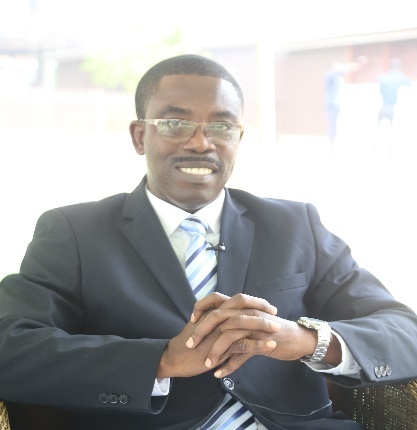
In the latest edition of Eye on Port’s live interactive session, professionals within Ghana’s shipping and maritime industry examined the role of emerging technologies to support the green transition of the maritime sector.
Eye on Port interacted with Capt. Samuel Ofori-Danquah, a Senior Marine Officer at the Ghana Maritime Authority (GMA), Dr. Capt. Nana Ofosu-Boateng, the Head of Nautical Studies Department at the Regional Maritime University (RMU), and Lieutenant Commander Christopher Armah of the Ghana Navy who jointly expressed support for the green transitioning of the industry.
Lieutenant Commander Christopher Armah, a Naval Officer, said ship-sourced pollutants from activities such as oil exploration, fishing, shipbuilding and ship repair, chemical and merchandise transportation have all taken their toll on ocean life, and as such, immediate and collective sustainable actions are necessary. He cited the example of the Exxon Valdes oil spill in Mexico which claimed the lives of hundreds of thousands of ocean species and its devastating effects felt 30 years after the incident.
Capt. Samuel Ofori-Danquah, the Senior Marine Officer at GMA, explained that ship-sourced air pollutants have contributed to the depletion of the ozone layer, adding up to the volatile climate experienced in recent years.
“We have to understand that this is the only place we have to survive, and all hands should come aboard to fight the environmental problems,” he expressed.
The International Maritime Organisation and its member-states have set themselves an ambitious goal of reducing shipping emissions by at least 50 percent by the year 2050.
All over the world, shipping companies and shipping service providers are preoccupied with reducing greenhouse gas (GHG) emissions and shipping-generated pollutants to protect the future of human and aquatic life.
Dr. Capt. Nana Ofosu-Boateng, the Head of Nautical Studies Department at RMU, said Sulphur scrubbers should be considered to eliminate 90 percent Sulphur content in vessel fuels. He also hinted at efficient ballast and propulsion systems for ships. He revealed that new technology is being explored to use sails for modern ships.
In addition to adopting greener fuel alternatives, Capt. Samuel Ofori-Danquah, on his part, praised big players – like Maersk – for expanding ship sizes as a means to cut fuel use.
“Since 2015, Maersk Line has had about 15 ships running on methanol and it is safe,” he remarked.
While it can be acknowledged that Africans lack the wherewithal of their global counterparts, the experts believe there is much Africa can do to contribute to the green agenda.
Dr. Capt. Nana Ofosu-Boateng urged African countries to work as a unit in its sustainable agenda.
Lieutenant Commander Christopher Armah also urged African countries to look into the production of biofuels, without being too concerned with short term profit making.
He added that “African ports can learn from the port of Antwerp where they use circular economy which tries as much as possible to recycle the waste generated from the port and ships which is used to generate energy for the port.”
According to the industry professionals, attitude is key when it comes to Africa’s approach to sustainable shipping.
Capt. Samuel Ofori-Danquah, the Senior Marine Officer at GMA said, “you go to some ports and intend of inspecting they’re taking money. In other situations, too, ship’s crew and seafarers throw garbage into the waters knowing very well African countries do not possess the kind of technology to detect them.”
Dr. Capt. Nana Ofosu-Boateng on the other hand called for increased punitive measures for recalcitrant vessel owners and operators to deter behavior.
While there were calls for increased investment into its work, the Ghana Maritime Authority was praised for their efforts in recent years for policing the nation’s waters and implementing international protocols intended to promote sustainable shipping.









